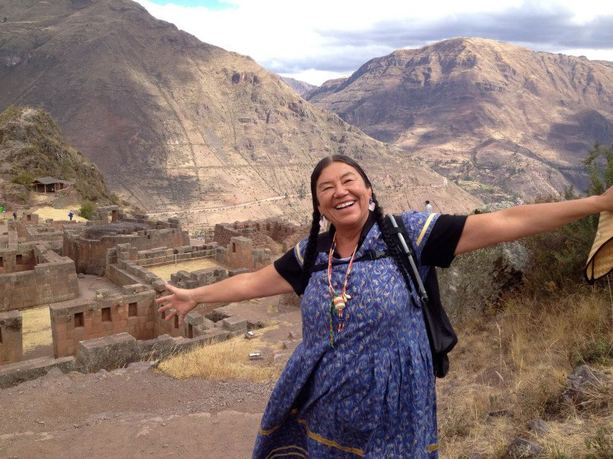|
By Theda New Breast, M.P.H.
The term Compassion Fatigue was first used in 1992 to describe what was happening to so many nurses who deal with illness, death and trauma in their work. In Indian Country, if we are helping our people heal and move toward wellness, we have to understand our own Compassion Fatigue, and develop our own self-care plan. “You can’t give away what you don’t have.” We hear this all the time. Or “You can only take people as far as you have gone.” Our ceremonial lives teach us the cycles of renewal, and cleaning off our spirit so we can live well. I remember what Edward Little Dog, a Blackfeet elder would tell me when I would come to his sweat. After returning home from ten days in Washington D.C., exhausted, frustrated, and just plain pitiful, he’d say, “That stuff sticks to you like fly paper. Negativity, gossip, racism, concrete walkways. You have to clean it off, start new.” We do things, out of habit, to renew and make ourselves feel better. Think about the past 5 years, 10 years, 6 months, and see if these symptoms are something that you experienced. Then we ask you start anew with a refreshing NEW self-care plan. Signs and Symptoms of Compassion Fatigue/Secondary Traumatization
Forgiving the Unforgivable: When Trauma Still Has Its Hooks In Us
Remember the Characteristics of PTSD
Sincere Questions to ask our Self and what you can do:
Theda New Breast, MPH, is a member of the Blackfeet Tribe, a founding board member of the Native Wellness Institute, and lives in Babb, Montana.
5 Comments
Roberta Ortiz
2/21/2014 10:15:24 am
Thank you for the great words to live by!
Reply
E-chota Wolf
2/21/2014 10:45:25 am
Thank You ! This one page describes what has happened with several of my family including myself. Sometimes seeing a view from a total stranger can be breathtakingly familiar, and confirming. Respect to you and Thank You again!
Reply
Emer Simpson
2/21/2014 11:03:57 pm
Theda
Reply
Elinor Nault Wright
2/22/2014 12:01:03 am
Thank you Theda for always adapting the way to reach out to Natives. Social Media (Facebook, Twitter, etc) is the new way to reach our youth and families.
Reply
Your comment will be posted after it is approved.
Leave a Reply. |
About This BlogThe Native Wellness Institute knows that wellness takes hold every day all over Indian Country. We invite you to tell us what is happening in your family, organization, tribe, or community. Send us a short article (1-3 paragraphs) with your activities, experiences or thoughts. Please include photos or videos and a little bit of information about you. We may edit some of the content if needed and then share it with our readers! Please send your blog submission to [email protected]. Archives
May 2015
Categories |

 RSS Feed
RSS Feed